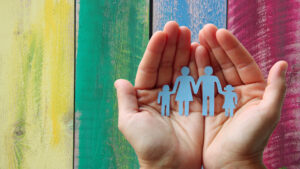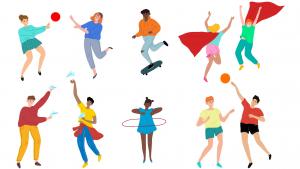The Big Ask Voices: Vulnerable Children
As part of our response to the death of Arthur Labinjo-Hughes, I have set out steps which need to be taken to ensure all children are supported and cared for. Part of the answer lies in being really clear in what we mean when we talk about vulnerability.
“If you can find something solid, you grab onto it.” – Girl in care, aged 16.
Source: The Big Ask Survey, 2021
This is just one voice. It’s taken from the half a million voices captured in The Big Ask survey earlier this year – the biggest survey of its kind in history – 6% of England’s children. For this girl in care, the solid thing she grabs on to is school. But what about the thousands of vulnerable children like her? What is solid in their lives?
I want to celebrate courageous voices like this 16-year-old girl in The Big Ask Voices series, a collection of new pieces which mine the huge, and unique set of data we gathered in The Big Ask, to keep bringing home to all of us the reality of lives like hers.
But first, what does vulnerability mean? Children don’t start off by describing themselves as vulnerable – adults do. Adults who are trying to help. Now I want to support both these instincts. The feeling that labels can be disempowering and emphasise limits, instead of the amazing things I know young people can achieve. But there remains the necessity of identifying and prioritising our efforts to support.
The best way through this paradox is to focus on specific kinds of vulnerability.
In The Big Ask we spoke to the following groups.
- Nearly 100,000 children with SEN – a Special Educational Need – or receiving Alternative Provision
- 13,000 children with a social worker
- 6,000 young carers
- Over 5,900 children in care
- Over 2,200 supported by Youth Offending Teams
- Children in unregulated accommodation
- Unaccompanied asylum-seeking children
- Nearly 1,900 children who said that they weren’t in any education
- Nearly 20,000 children who said they were receiving some kind of mental health support.
This is not a comprehensive list, but in our qualitative data, we have captured the voice of the child whose circumstances may fall between definitions which might confer a particular need or disadvantage. Our Help at Hand team speak to children every day, many of whom don’t fall into any of the categories listed above.
In The Big Ask Voices series, we’ll share children’s voices on mental health, early years, special education needs, school attendance, and keeping vulnerable children safe online.
Beyond these categories, it’s important to repeat a central finding from The Big Answers report we published in September. Across all groups, children said they value the same things. A happy home life. Feeling well. A great education. A great community. Caring for the environment. A secure future. Fairness. Getting on in life. And that is no different for vulnerable children.
In common with other children, vulnerable children are most likely to be unhappy about mental health, the choice of things to do in their local area and life at school or college.
So vulnerable children have exactly the same aspirations as their peers. Of course they do. They were clear – we do not want to be defined by our needs or vulnerabilities.
So our job this week is clear too. To set out – in their own words – what is different for vulnerable children compared to their peers, so we can make their horizon for opportunity exactly the same size.
And in the meantime, give children like that young girl in care as much as we can that’s solid – that thing she can grab on to. Because when that does happen, and you ask vulnerable children who have had steadfast, lasting support, this is the result.
“I’d say there is no limit. I’ve got all this life in front of me so am going to just do it and not really think about it, just go for it. I’m going to apply to English and drama school, because why not?” – Care-leaver, aged 17.
Source: The Big Ask Survey, 2021






